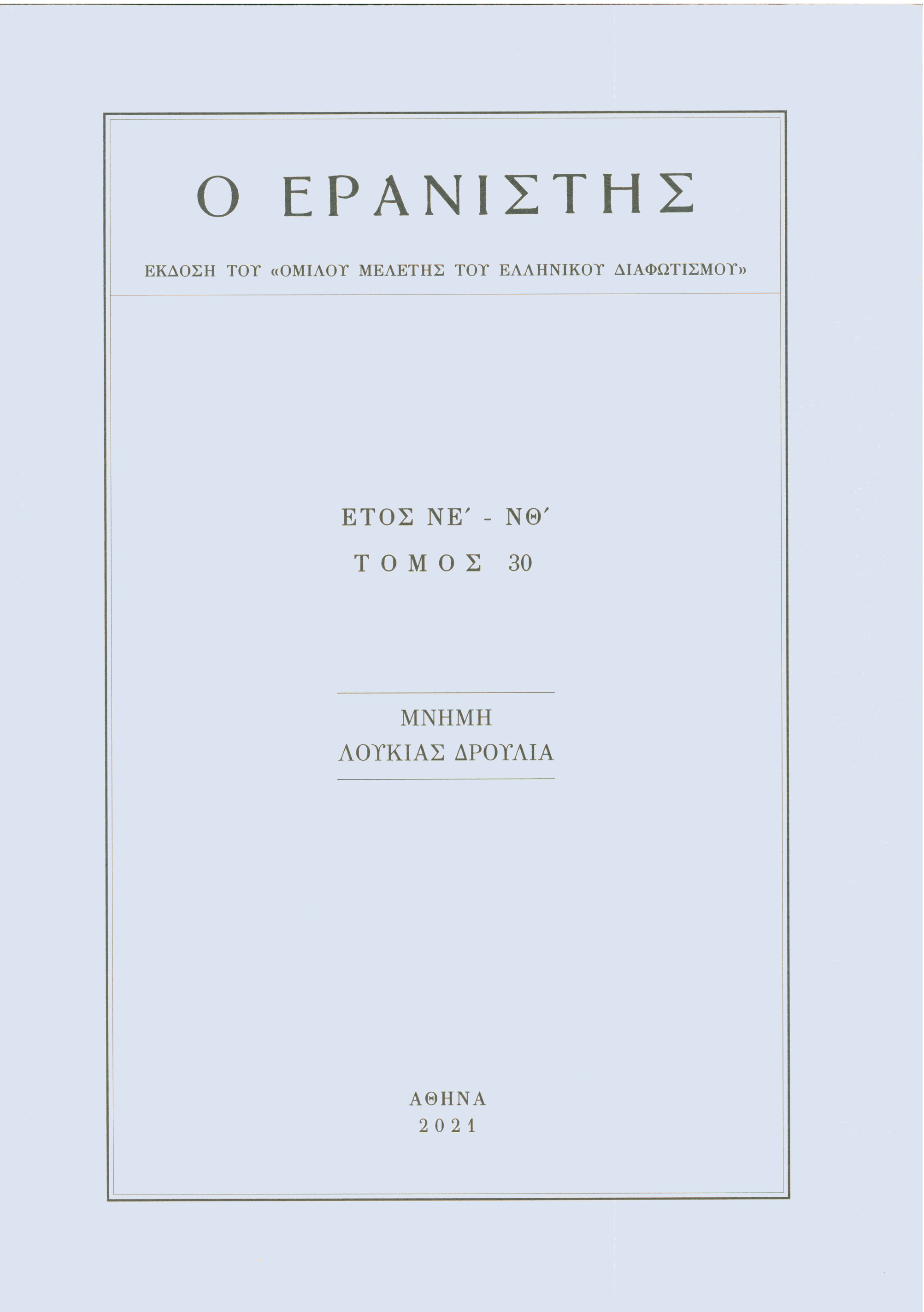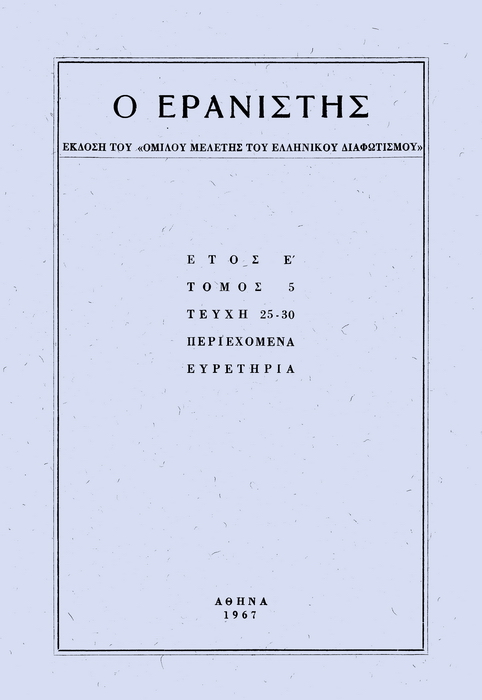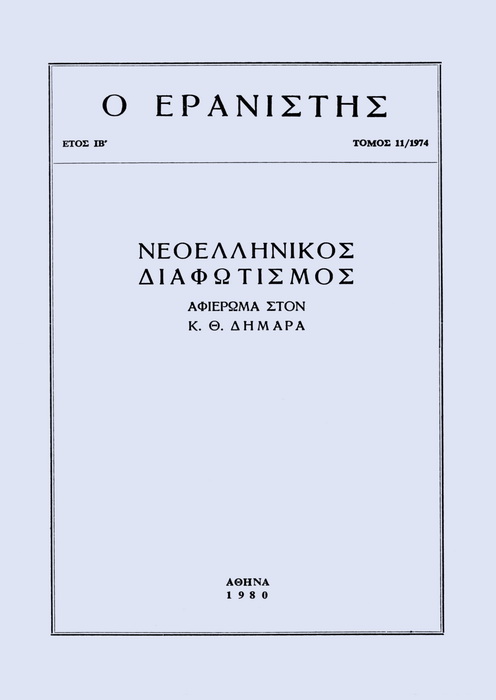Le Grec littéral: Blason de la noblesse Phanariote émergente
Abstract
Η λόγια ελληνική γλώσσα: έμβλημα της αναδυόμενης τάξης των Φαναριωτών στις Παραδουνάβιες Ηγεμονίες
Κατά τη διάρκεια του 17ου αιώνα βοεβόδες, βογιάροι και λόγιοι της Μολδοβλαχίας αντικατέστησαν τη σλαβονική με την ελληνική γλώσσα στους τομείς της διοίκησης και της παιδείας. Η καθομιλουμένη ελληνική έγινε κοινή λαλιά στις Παραδουνάβιες Ηγεμονίες. Για να επιδείξει την υπεροχή της απέναντι στην τοπική κοινωνία η αναδυόμενη τάξη των Φαναριωτών προέβαλε ως σύμβολο της ευγενικής κωνσταντινουπολίτικης καταγωγής και ισχύος της μια γλαφυρή εκδοχή της αρχαίας ελληνικής γλώσσας. Υποδείγματα τέτοιου ύφους και γραφής είναι τα κείμενα των Μαυροκορδάτων, Αλέξανδρου και Νικόλαου.
Article Details
- Come citare
-
Bouchard, J. (2024). Le Grec littéral: Blason de la noblesse Phanariote émergente. The Gleaner, (30), 157–170. https://doi.org/10.12681/er.36097
- Sezione
- Μελετήματα

Questo lavoro è fornito con la licenza Creative Commons Attribuzione - Non commerciale - Condividi allo stesso modo 4.0 Internazionale.
The copyright for articles in this journal is retained by the author(s), with first publication rights granted to the journal. By virtue of their appearance in this open access journal, articles are free to use (with the exception of the non-granted right to make derivative works) with proper attribution for non-commercial uses. The Greek Society for Eighteenth-Century Studies (ΟΜΕΔ) retains the worldwide right to reproduce, display, distribute, and use articles published in THE GLEANER in all formats and media, either separately or as part of collective works for the full term of copyright. This includes but is not limited to the right to publish articles in an issue of the Journal, copy and distribute individual reprints of the articles, authorize reproduction of articles in their entirety in another ΟΜΕΔ’s publication, and authorize reproduction and distribution of articles or abstracts thereof by means of computerized retrieval systems






